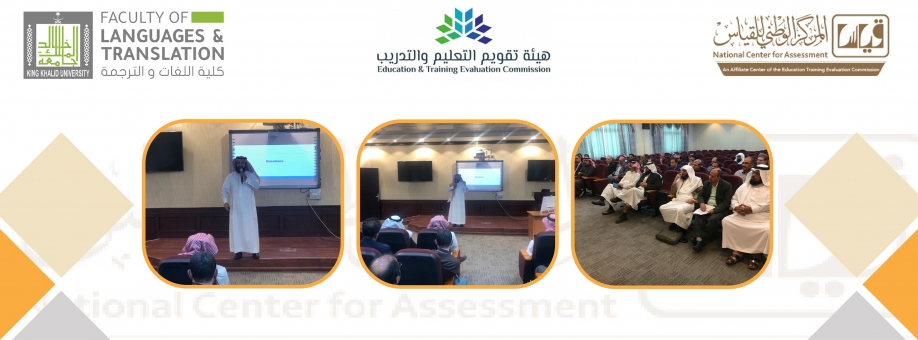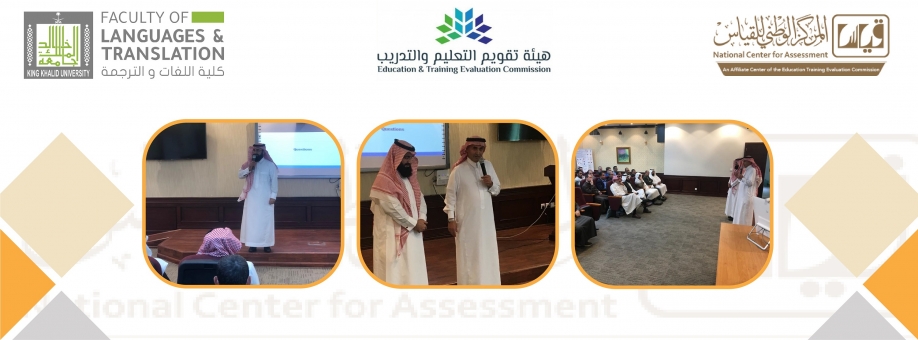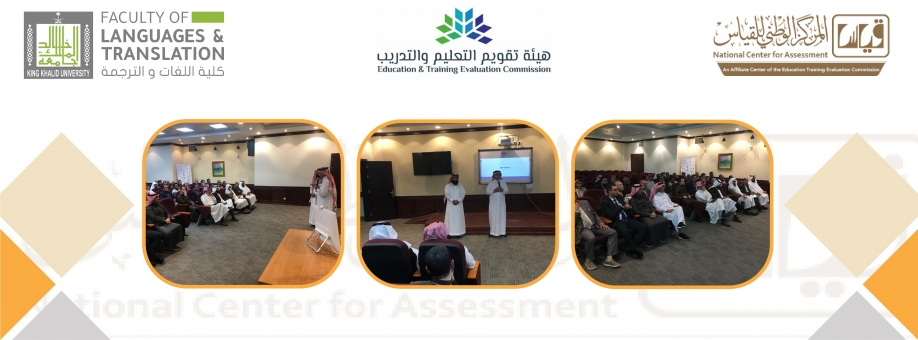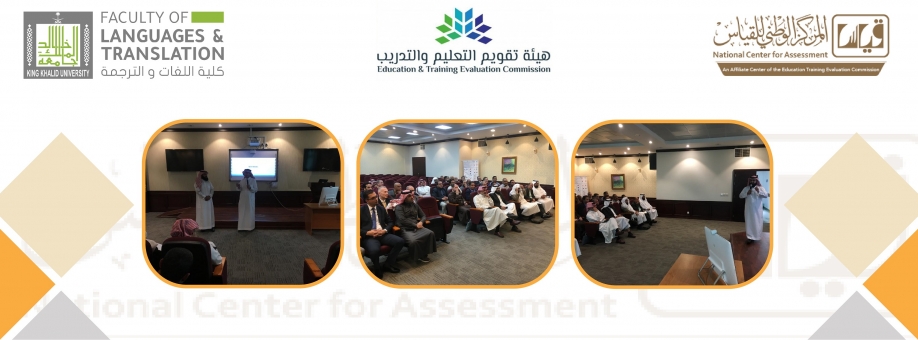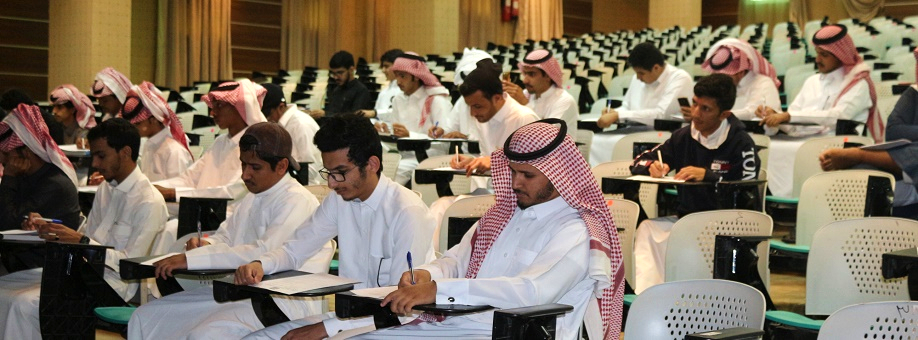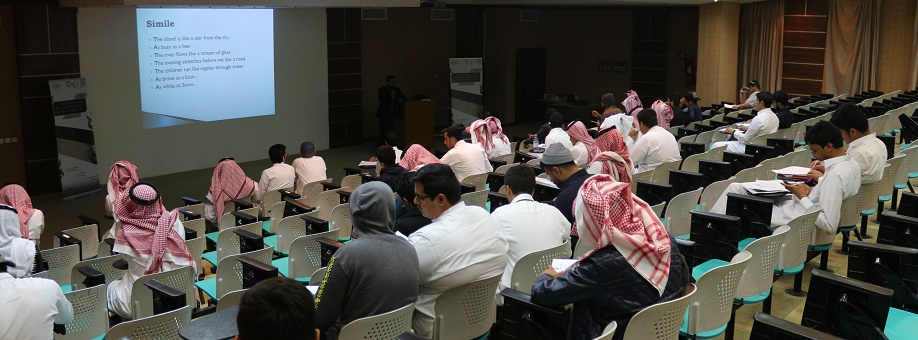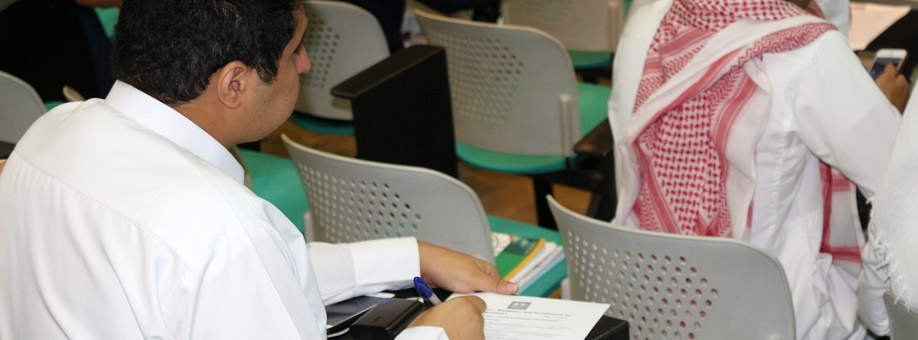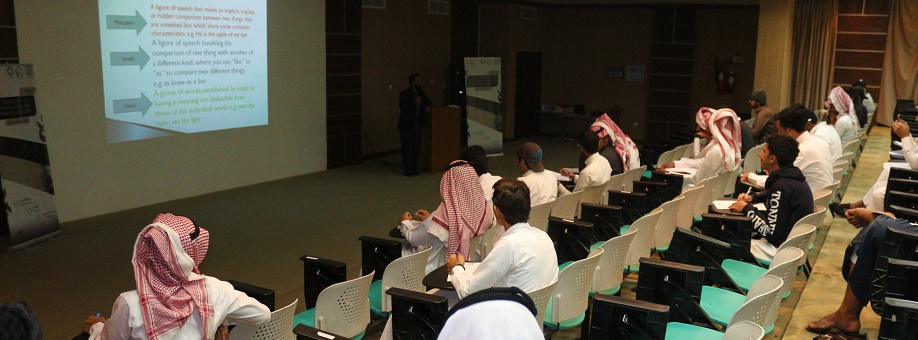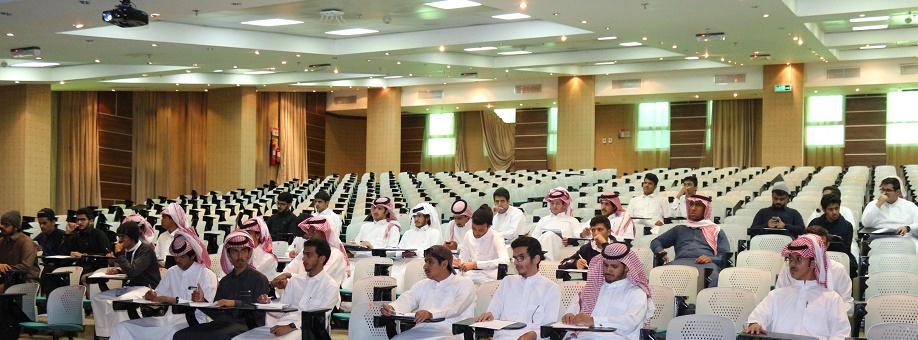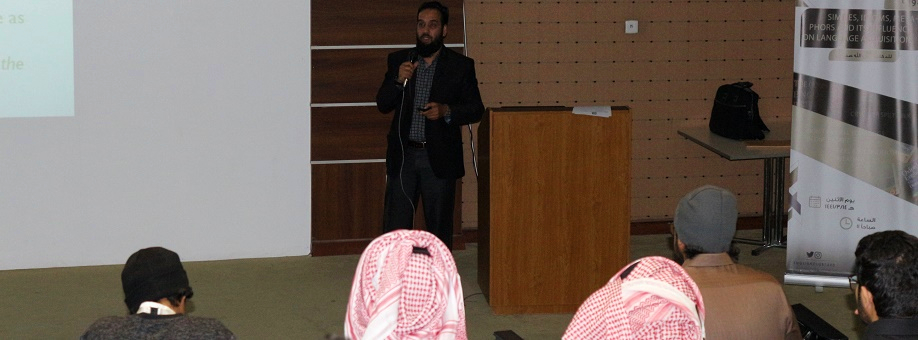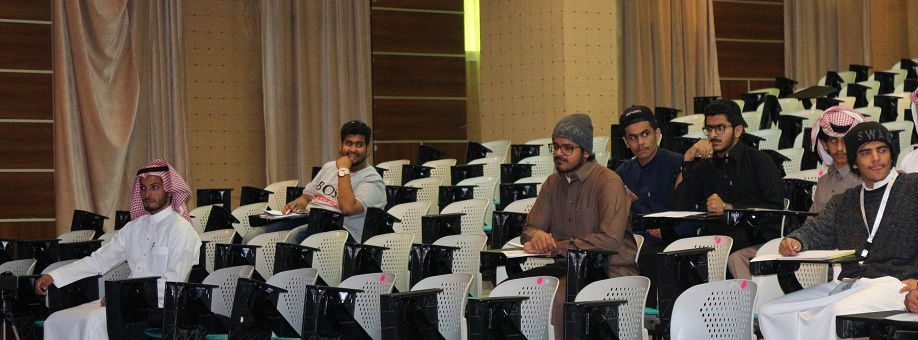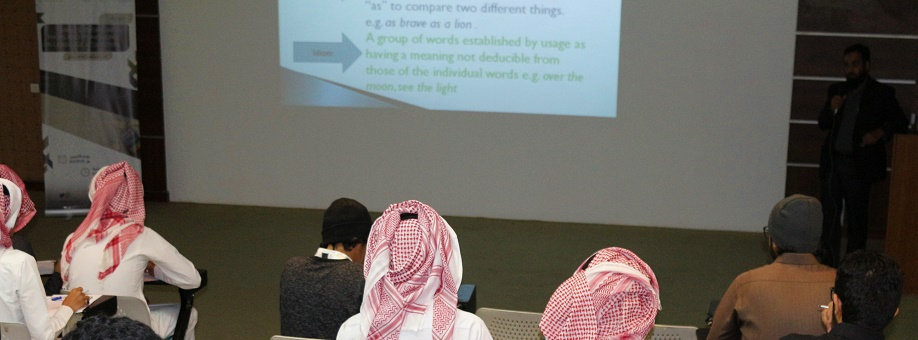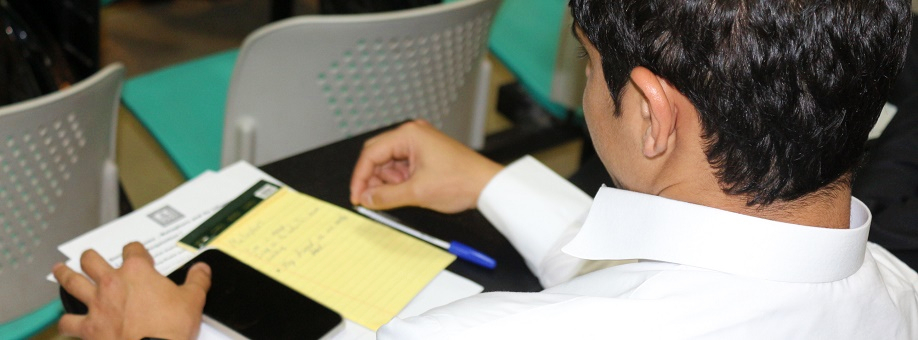Fall 2019 Student Activities Closing Ceremony: English Club Encourages Increased Participation
Under the patronage of Dr. Abdullah Al-Melhi, Dean of the Faculty of Languages and Translation, the English Club of the Bachelor of Arts in English program held a special closing award ceremony on November 19, 2019, at 11 a.m. in Auditorium 5. The ceremony marked the end of activities carried out during the first semester of the current academic year. The ceremony was attended by Vice Dean of Academic Development & Quality, Dr. Yahya Asiri, Department Chairman, Dr. Munassir Alhamami, Vice Dean for Academic Development & Quality, Dr. Abdulrahman Almosa, and a number of the faculty members and students.
The ceremony was commenced with a stirring recitation of the Holy Quran by student Saeed Al-Qahtani, and was followed by a short speech, given by Dean Al-Melhi and English Club Director Faisal Alfadhil. A 5-minute video of the activities that the English Club had carried out was shown to the audience via big screen on the stage. A recitation of a poem was given by Ali Al-Jaser.
In his speech, Dean Al-Melhi praised the efforts exerted by the English Club members and the participants throughout the semester to make it a success. On behalf of the English Club, Saud Al-Shahrani delivered a speech, hailing the coordination efforts shown by all English Club members, including their meeting on weekends to arrange for the conducted activities.
Elegant memorial shields were handed over to Dean Al-Melhi, Vice Dean Asiri, and Chairman Alhamami as a token of gratitude for their keenness on providing all that is needed for facilities and encouragement to the English Club to help it achieve its goals.
A ceremony of handing over certificates of appreciation to the faculty members who had given presentations or workshops ensued. Dr. Eyhab Abdulrazak Bader Eddin received a certificate of appreciation for his workshop, titled 'Translation: A Broad Overview Weaving Its Threads Together'. Dr. Karem Abdelatif Ahmed received a certificate of appreciation for the workshop he gave on time management, while Dr. Ahlullah Siddiqui got a certificate of appreciation for his presentation on figurative language.
Many students were honored for their achievements in competitions at the level of the University, including Ali Al-Jaser (poetry), and Ahmed Al-Shehri (Karate). Abdulrahim Al-Qahtani (who came first), Abdulkarim Suleiman (who came second), and Mohamed Hamed (who came third) were all honored for mustering up the courage to stand on stage in previous competitions and for their outstanding performance. The ceremony was concluded by announcing the names of the unsung heroes who had been working assiduously behind the scenes to help the English Club achieve its goals. They are as follows:
Faisal Al-Dossari;
Tamim Mohammed;
Saud Al-Shahrani;
Fawaz Al-Qahtani;
Saeed Al-Qahtani;
Abdulrahman Al-Amer;
Abdulrahim Al-Qahtani;
Ali Al-Jaser;
Muhsari Al-Qahtani;
Saad Al-Shahrani;
Mohammed Al-Qahtani;
Mohammed Al-Yami;
Abdulkarim Al-Shahrani;
Faisal Al-Shahrani.
Date: 11/19/2019
Source: Dr. Eyhab Abdulrazak Bader Eddin


